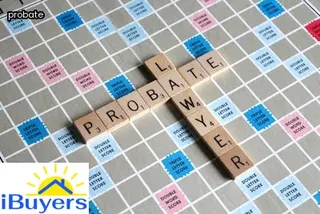In Rhode Island, a court-ordered sale of property can be used as a means to collect on a judgment. Property liens are filed against the property in order to secure payment of the judgment.
A lien gives the creditor an interest in the property, and if the debtor does not pay off their debt, then the creditor may apply for a court order allowing them to sell the property and use proceeds from that sale to satisfy the judgment. The process is initiated by filing a Complaint in Superior Court by either party seeking to have a court-ordered sale of property granted.
Once both parties have been served with notice of the complaint, they will have an opportunity to present evidence at a hearing where a judge will ultimately decide whether or not to issue an Order for Sale. If approved, this Order will direct a sheriff or marshal to execute the sale process.
Prior to any sale taking place, it is important for all involved parties to understand their rights under Rhode Island law and how they can protect their interests throughout this process.

A Partition Action is a legal process that allows for the forced sale of a jointly owned property when all parties involved cannot come to an agreement about its sale. This type of action is typically used when one or more owners wish to sell the property, but other owners are unwilling to do so.
In Rhode Island, this type of court-ordered sale can be initiated by any owner, regardless of the deed's language. The court will then decide how to divide the proceeds of the sale among all parties.
It is important to note that the court may also order a physical partitioning or division if the property is large enough and it would be feasible to split it among all owners.
Partition actions are the legal process to divide land or property between two or more owners. In Rhode Island, a court-ordered sale of property is triggered by a partition action.
Partition actions can be divided into two main categories: voluntary and involuntary. Voluntary partitions occur when all parties agree, in writing, to divide the property among themselves.
Involuntary partitions happen when one party files a petition with the court to force the division of a piece of property and the court orders a sale due to an inability to reach an agreement among all parties. The sale may be conducted in public or private depending on the circumstances.
It is important to understand what type of partition action is needed and how it will impact the sale of property in Rhode Island before taking any action.

Partition lawsuits are an unfortunate reality for many property owners in Rhode Island. It is important to understand the strategies available to resolve such a dispute.
When a court orders the sale of a property, the owner may choose to voluntarily sell it and split the proceeds among the parties or one party may buy out the others’ share. If neither of those options is feasible, then a third-party buyer can be found and all parties will receive their portion of the proceeds from that sale.
Another approach is to ask the court to partition the property in such a way that each party obtains part of it, ensuring that every person involved receives their fair share without having to go through a full sale. Finally, if none of these solutions are satisfactory, then litigation may become necessary in order to reach a resolution.
Understanding these strategies can help property owners in Rhode Island avoid costly legal proceedings and achieve an equitable outcome when faced with a partition lawsuit.
When it comes to court-ordered sale of property in Rhode Island, some may wonder if it is necessary to hire a real estate attorney or Realtor. The short answer is yes.
On the one hand, a real estate attorney will be able to provide detailed legal advice and representation in court. They can also help with finding potential buyers and outlining the final sale agreement.
On the other hand, a Realtor can assist with all aspects of selling inherited property including properly pricing, marketing and negotiating the sale. Additionally, they have access to MLS listings which allows for more exposure for the property and potentially a faster sale.
Ultimately, having both a real estate attorney and Realtor involved in the process increases your chances of successfully selling an inherited property in Rhode Island through a court-ordered sale.

When it comes to selling an inherited property, there are many benefits to opting for a court-ordered sale in Rhode Island. This type of sale allows the court to determine a fair market price for the property and ensures that all parties involved adhere to the sale’s terms.
The process is typically faster than a traditional real estate transaction, which helps minimize any tax liabilities and legal fees associated with the inheritance. Additionally, since the court is involved in the decision making process, it eliminates any potential conflicts between family members or other stakeholders that could arise during a traditional sale.
Furthermore, as part of the court-ordered sale agreement, all outstanding debts on the property can be cleared before completion of the transaction. This makes it easier for beneficiaries to receive their inheritance without having to worry about repaying creditors or dealing with liens on the property.
Finally, due to its expedited nature, a court-ordered sale provides a swift resolution of inherited properties in Rhode Island.
Navigating the process of court-ordered property sales in Rhode Island can be complex and intimidating. It's important to understand the details of a court-ordered sale before entering into a contract or making an offer.
In Rhode Island, court-ordered sales are typically initiated when a homeowner fails to make mortgage payments or has been otherwise delinquent on loan obligations. The lender then files a complaint with the courts and initiates foreclosure proceedings.
The court will order a public auction where bidders can place offers on the property; if no bids are received, the lender may be given title to the property. Potential buyers should understand that they are bidding on an "as is" basis and must perform their own due diligence prior to submitting an offer.
Additionally, buyers should also review any liens that may exist against the property, as well as any local zoning restrictions that may limit its use. All purchases must be made in cash, so it is essential that potential buyers have their finances lined up prior to attending the auction.
Finally, all winning bids must be approved by the court before closing can occur; this process can take several weeks or even months depending on case load and complexity of the transaction.

When court-ordered property sales occur in Rhode Island, one of the important considerations is assessing comparable prices. Comparable prices reflect the current market value of similar properties in the same neighborhood.
Buyers need to consider factors like size, condition, and amenities when evaluating comparable prices. It’s also essential to research recent sales in the area and compare them to current listings.
This will help buyers gain a better understanding of how much to offer for court-ordered property sales. Additionally, it’s important for buyers to consider how long each home has been on the market since this can impact the amount they should bid on a court-ordered sale.
If a home has been listed for months without any offers, it could be an indication that it is overpriced or not competitive with other homes in the neighborhood. Furthermore, buyers should take into account any necessary renovations or repairs that may be required after purchase.
These costs must be factored into their offer price so they can ensure profitability after closing on the sale.
If you're looking to complete a court-ordered sale of property in Rhode Island, it's important to establish a timeline for the process. It begins with researching the local laws and regulations that apply to these transactions so that you understand what is required of both buyers and sellers.
Once an understanding is established, it's time to develop an appropriate timeline for completion of the sale. This includes determining when the offer will be made, when a contract will be signed, when all necessary paperwork will be filed, and when the closing date will occur.
Additionally, if there are any liens or other encumbrances on the property that need to be addressed, this should also be taken into account. Finally, depending on your situation and circumstances, you may need to set certain deadlines for making payments or providing other information related to the sale.
By establishing a timeline for completing court-ordered property sales in Rhode Island ahead of time, you can ensure that all parties involved are aware of their obligations and can plan accordingly.

When it comes to court-ordered sale of property in Rhode Island, understanding the legal requirements for filing a partition action is key. In order to file a partition action, one must be the owner of an interest in real estate or have authority from the owner.
It's important to note that partition actions can be filed by tenants in common and joint tenants alike. As part of the filing process, the court will decide what type of division is equitable and best suits all parties involved.
To ensure a successful outcome, it's paramount to familiarize yourself with state laws and regulations as well as any local rules that may apply. Additionally, depending on the situation, you'll need to address issues such as taxation and environmental concerns before moving forward.
The process can be complex and having a qualified attorney on your side might be necessary for navigating this terrain successfully and efficiently.
When it comes to court-ordered sale of property in Rhode Island, it is important to understand what type of partition action is right for your situation. Partition actions are categorized as either voluntary or involuntary.
A voluntary partition occurs when all the interested parties agree on the terms of the sale and the court approves it. An involuntary partition, however, is initiated when one party files a lawsuit with the court and requests a forced sale.
This occurs when there isn't unanimous agreement among all parties. In this case, the court must determine which party has title to the land, who has an interest in the property, and then order a sale in order to divide up any proceeds generated from it.
In some cases, an auction may be ordered by the court in order to ensure that all interested parties receive fair market value for their portion of the proceeds. It is crucial to determine which course of action is best for your individual situation prior to taking legal action.
If you want to avoid probate in Rhode Island, there are few steps you can take. One option is to create a living trust.
A living trust allows you to transfer property without going through the court system. This means that when you die, your property and assets will go directly to the beneficiaries listed in the trust document without having to go through the lengthy and expensive probate process.
Another option is to use joint tenancy with rights of survivorship; this allows two or more people to own the same property and if one of them dies, their portion of the ownership automatically goes to the other owner without having to go through probate court. Finally, for estate planning purposes, it is important for Rhode Island residents to have a properly drafted will.
By drafting a will, you can ensure that your wishes are followed after your death, which can help avoid costly litigation in probate court and reduce uncertainty about who gets what from your estate.

Closing an estate in Rhode Island can be a complex process, especially if it involves a court-ordered sale of property. There are several steps that must be taken to ensure the proper sale and distribution of assets.
First, the executor or personal representative must obtain a court order authorizing the sale of the property by filing a petition with the probate court. Once the court approves the petition, the executor must provide notice to all interested parties, including creditors and heirs.
The executor may also need to obtain approval from other state agencies or departments before proceeding with the sale. After all approvals have been granted, a public auction may be held to sell the property at fair market value.
Once payment has been received, the executor will distribute proceeds according to instructions provided in the decedent’s will or trust agreement. Finally, any remaining assets will be disposed of according to state law.
To ensure that all legal requirements for closing an estate in Rhode Island have been met, it is important to consult with an experienced attorney who specializes in estate planning and administration.
When it comes to a court-ordered sale of property in Rhode Island, the answer to the question “Do I need an attorney to sell my house?” is an emphatic yes. Selling real estate can be a complicated process and the stakes are high when selling through a court order.
Seeking legal guidance is essential for ensuring your rights as a seller are protected and that no potential issues arise during or after the sale of your property. An attorney will be able to provide advice on what you need to know regarding any taxes or fees associated with selling your home, as well as making sure you are in compliance with all applicable state and local laws.
They can also help negotiate fair market value for your property and handle any necessary paperwork required for the sale. Ultimately, having an experienced attorney on your side when selling property by court order in Rhode Island will give you peace of mind and ensure that everything goes smoothly from start to finish.
In Rhode Island, a court-ordered sale of property is subject to the small estate statute, which defines the process for transferring title and ownership of real estate when a decedent has passed away without leaving a will or other legal document. Under the small estate statute, in order to transfer ownership of real estate that was owned by a deceased person who did not leave behind a will or other legal document, an individual must submit an affidavit to the probate court.
This affidavit must include specific information about the decedent's identity and proof of death. After this affidavit is approved by the court, it can then be used as proof of title to the property in question.
The small estate statute also requires that any potential buyers be given notice at least five days prior to any sale or transfer of title taking place. This notice must specify both the date and time that the sale will take place.
Additionally, all parties involved in such sales must adhere to certain rules regarding advertising and bidding processes. By adhering to these rules and following all necessary steps prescribed by Rhode Island's small estate statute, individuals can ensure that they are able to navigate court-ordered sales of property safely and legally.